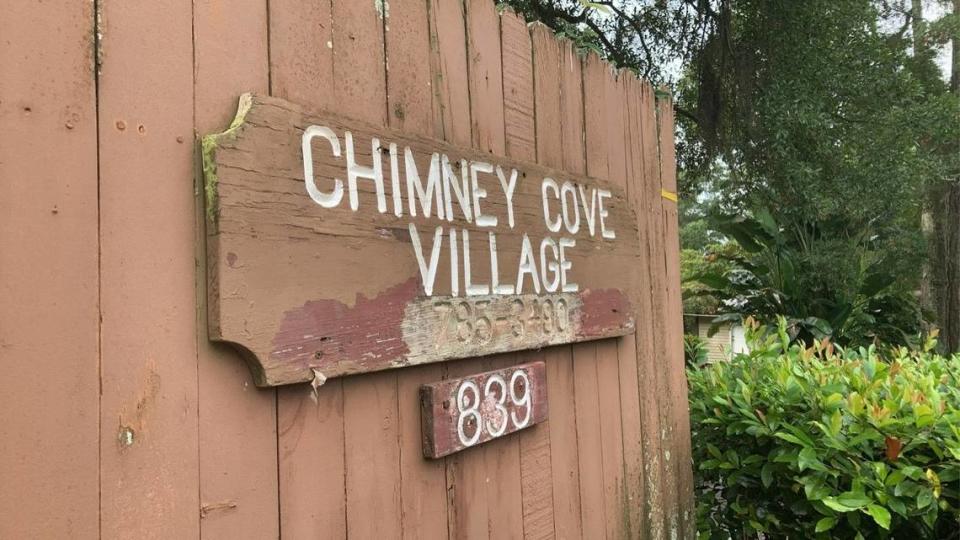Hilton Head revisits housing struggle. Residents hope this outcome will be different
Ward 1 Councilman Alex Brown was struck with a sense of déjà vu Tuesday, a sensation he likely shared with other long-time island residents in the town council chambers.
For the second time in three years, Hilton Head’s leaders are crafting a vision to solve the dire need for affordable housing on the island.
Town council and island residents gathered Tuesday to consider a new plan to provide affordable housing. The new “workforce housing framework” lays out the town’s goals for housing on the island and strategies to help reach them, an end that has eluded Hilton Head’s local officials for decades.
The previous document adopted in 2019 came with eight strategies recommended by an outside firm to provide less expensive homes on the island, though only the first four have been implemented to little success.
Just two months removed from the near-eviction of around 300 tenants at Chimney Cove, one of the few remaining affordable housing options on Hilton Head, Brown and residents who spoke at the meeting said this time feels different, despite past failures to adequately address the problem.
Many in the room shared a newfound confidence in the island’s ability to solve old housing woes.

Longtime resident Jack Alderman said housing has been discussed by various councils in the 30 years he has lived on Hilton Head, although action has been scarce. But the Chimney Cove emergency, paired with the new reality of businesses closing earlier and service being disrupted by labor shortages, has ignited new urgency in the community.
“A crisis came along that really put a spotlight on how difficult housing is for the people who serve our essential needs here on Hilton Head Island,” Alderman said. “The public is seeing in their everyday life that it’s a big issue. You don’t need to look further than … a restaurant worker who can’t be there, so you can’t order. (The time for solutions) is ripe, it’s going to happen.”
Brown said unlike the 2019 plan adopted by Hilton Head, the new framework is designed to integrate every solution it identifies. The old plan was ineffective, he said, partly because the town stopped short of full implementation.
“In the original (affordable housing) plan, council kind of picked pieces of that to try and implement,” Brown said. “In this case, we’re bringing forward four pillars, we’re not picking and choosing, we’re saying, ‘Let’s go do all of them.’”
Brown also said the town now has Town Manager Marc Orlando, who has helped “bring (council’s directions) to fruition” since taking the role in February 2021.

How the plan was developed
To tackle what Ward 3 Councilman David Ames described as a “herculean task,” Hilton Head turned to the MKSK consulting firm shortly after the Chimney Cove crisis.
MKSK Senior Associate Kyle May and Tammie Hoy Hawkins, president of Together Consulting, organized to study communities with similar issues and demographics, research solutions that have succeeded elsewhere and strategize how to implement those fixes on the island.
A 35-participant charrette of Hilton Head residents — a process that involves numerous stakeholders to develop a plan — also helped identify goals and needs on the island.
The framework study identified affordable rent for the average accommodation and food services worker — a group representing about 5,000 people on Hilton Head — to be around $566 a month. Real estate company CoStar estimated the average rent in Beaufort and Jasper Counties to be almost $2,000 this September.
Rental rates are being inflated by Hilton Head’s short-term rental market as well, according to the framework, with roughly a third of the island’s housing stock used as short-term properties.
The Four Pillars
To solve the issues previous councils couldn’t, and to secure the town’s long-term commitment to creating affordable homes, the new plan is centered on four “pillars of affordability” to guide future policy.
The pillars, May said, are not sequential. The steps outlined in each pillar could be implemented simultaneously.
The pillars’ strategies are informed by study of how places like Martha’s Vineyard, Charleston and other similar communities have succeeded with policies like land banks, land trusts, deed restrictions and affordable housing coalitions to keep home prices low.
The first pillar, “community,” aims to establish relationships between the town and organizations across the island, region and state to address housing needs.
It also looks to educate islanders on the framework through a “Case for Housing communications campaign” to advocate for town involvement in creating affordable housing. The campaign is an important step to address potential “not in my backyard” pushback to affordable home development, which the council has acknowledged since 2019.
The “planning” pillar focuses on crafting a new “workforce housing action plan” and accounting for all current affordable housing options on the island.
“Management,” closely related to the planning pillar, involves the town hiring dedicated staff to coordinate affordable housing programs and look into creating a professionally managed housing group.
Where will funding come from?
But the fourth pillar, “revenue,” drew by far the most discussion. The Tuesday evening presentation didn’t include specific funding sources for the housing.
Brown was among the council members who said they’d like to see specific options before the Nov. 1 council meeting, where the affordable housing framework will be considered for a vote.
“This train won’t leave the station without access to capital,” Ward 2 Councilman Bill Harkins said. “Work has to begin on identifying the revenue source or sources that are sustainable.”
Harkins alluded to potential state legislature funding that could be secured with help from Sen. Tom Davis (R-Beaufort).
The plan lays out first steps, such as “identify possible town revenue sources” and “establish a network of potential financial partners,” including banks, private investors and others. The plan also specifies the need for recurring sources, so established housing programs can continue long-term.
Orlando, the town manager, said the document presented Tuesday is not final, and nothing presented at the workshop will be officially adopted until a vote is held at the Nov. 1 town council meeting.
Still, council members and members of the public were optimistic about the framework as presented.
“This has assimilated and defined a problem for us,” Ward 6 Councilman Glenn Stanford said. “Now it’s up to us to … establish these goals on Nov. 1 and come up with a plan to where we’re actually able to get this done.”
Perhaps one of the strongest endorsements of the new framework came from Thomas Barnwell, a Hilton Head Island resident for over 80 years. Barnwell said the current council has done more than any since the town’s incorporation in 1983 to address affordable housing.
“You are making progress,” Barnwell said, addressing the council. “It is a discussion that town council has been discussing off and on since 1994 … I’m here to ask each of you as town council members to please vote in favor of the presentation that has been presented here today.”
